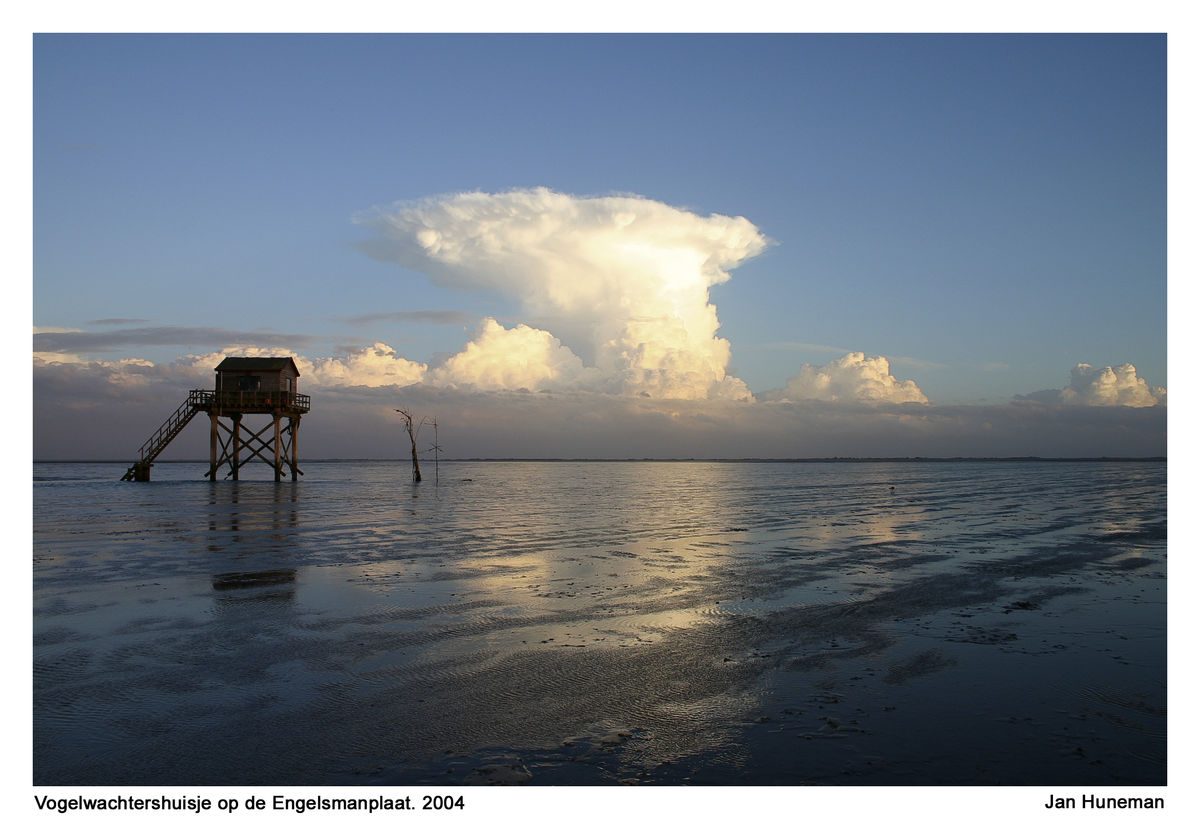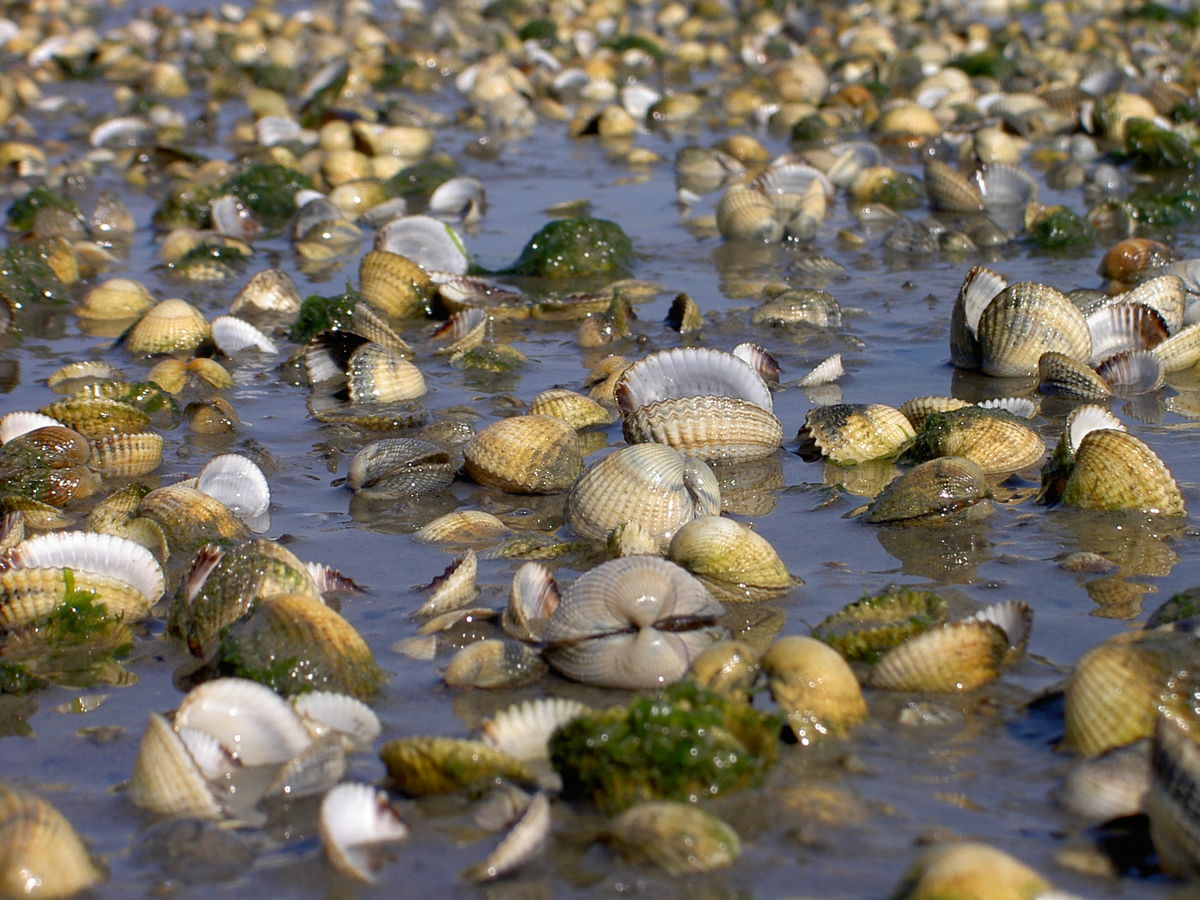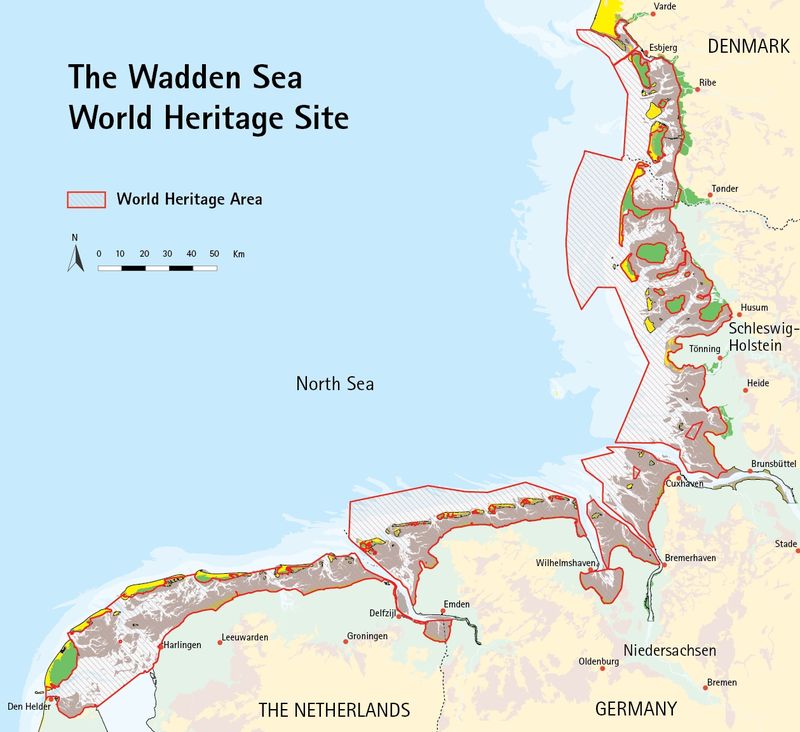Case Study
A Single Integrated Management Plan to Protect the Wadden Sea
Contact name
Soledad Luna
Institution name
Common Wadden Sea Secretariat (CWSS)
Region & country
Wadden Sea: a trilateral cooperation between Denmark, Germany and the Netherlands
Summary
A single integrated management plan (SIMP) is being developed to describe how the countries, that function differently, work together to protect the Wadden Sea World Heritage Site.

Birdwatchers hut at Engelsmanplaat
CWSS / Jan Huneman

Cockles
CWSS/ Norbert Hecker

Map of the Wadden Sea World Heritage Site
CWSS
Background of the project
Since 1978, Denmark, Germany and the Netherlands have been cooperating for the protection of the Wadden Sea. In over 40 years of trilateral cooperation, the countries independently and together have built a comprehensive management system with various trilateral, regional, and local strategies, management plans, plans of actions and networks. The SIMP will support the continuous improvement of coordinated management for the conservation of the Site.
Next to the Trilateral Wadden Sea Cooperation, a large part of the Wadden Sea was allocated as a UNESCO World Heritage List in 2009. When the area of Denmark was included in the World Heritage List in 2014, it was accompanied by a request for an integrated management plan, which should also provide an overview of the nature conservation management structures.
Solution and actions taken
The SIMP provides a clear overarching description of the management systems at the national and trilateral levels. Five key topics that need ongoing attention are specifically addressed: fisheries, tourism, shipping and ports, renewable energy and energy from oil and gas and coastal flood defence and protection. It also presents existing joint management activities across the property and showcases gaps which need enhanced joint efforts to maintain the area’s Outstanding Universal Value.
The SIMP for the Wadden Sea World Heritage is a political agreement of the Trilateral Wadden Sea Cooperation (TWSC), meaning it is a legally non-binding document of common political interest. It is complementary to the Wadden Sea Plan, it acts as an umbrella for existing plans and policies, informing how these are implemented trilaterally.
Other institutions or parties involved
During the development of the SIMP, the process is just as important as the product. The Trilateral Task Group World Heritage holds oversight of the process of development. Other task, expert, and network groups of the TWSC as well as site managers were directly involved. National and Trilateral advisory boards will be consulted before agreeing on the final single integrated management plan.
Results
The process of developing the SIMP is ongoing. The phase currently worked on is the formulation of the specific activities within the five key topics. The aim is to have a final SIMP to be adopted in the next Trilateral Ministerial Conference end of 2022.
Challenges
The main challenge the SIMP aims to overcome is the differences between countries. The three countries have different nature conservation management structures with also different competences. In addition, the EU law is implemented differently in each country, for example, the Marine Strategy Framework Directive is an important legal instrument for the Wadden Sea in Denmark and Germany whereas in the Netherlands it is not applied to the Wadden Sea.
Lessons learned
For a large-scale complex process as this one, it is important to reserve resources and capacity, and to be adaptable. The process is as important as the final product. It is key that the involved are included from early phases of design and planning to support the development of a feeling of ownership. Finally, it can be noted that differences in a long-standing cooperation can be leveraged to a continuous improvement.
Other resources
-
https://www.youtube.com/channel/UCYRzxEiSHooIO34pDaiObsw/videos
You can find many additional resources on the Wadden Sea World Heritage YouTube page.
-
Instagram
https://www.instagram.com/waddenseaworldheritage/
Contact name
Soledad Luna
Institution name
Common Wadden Sea Secretariat (CWSS)